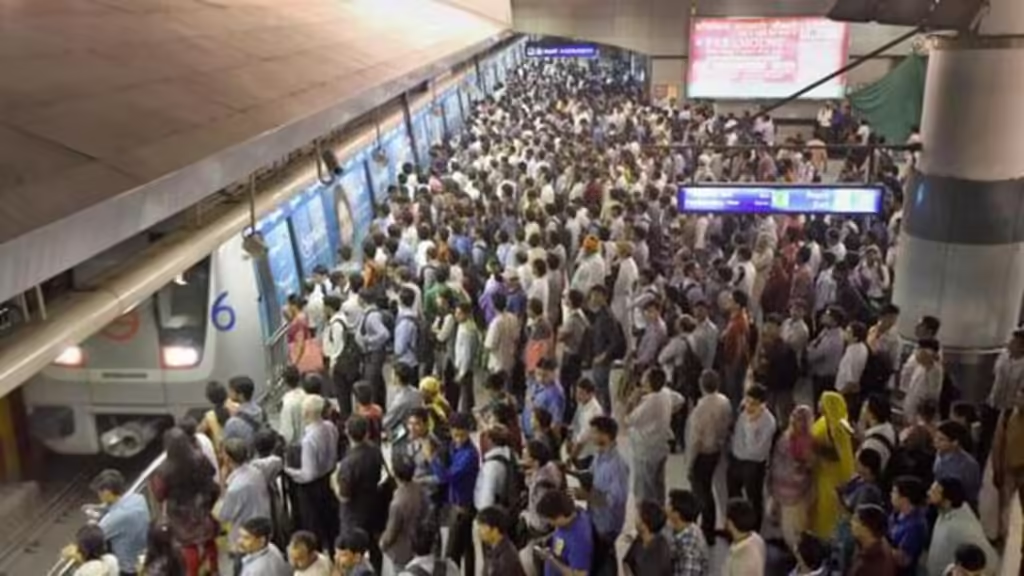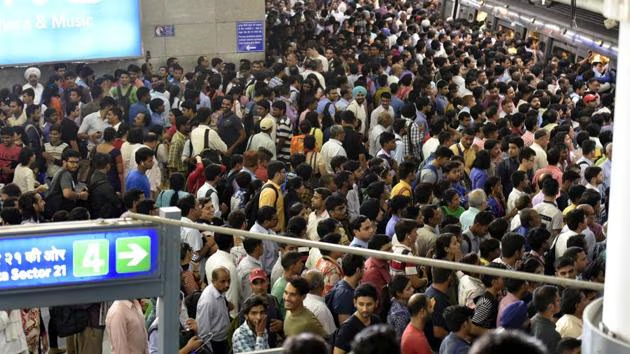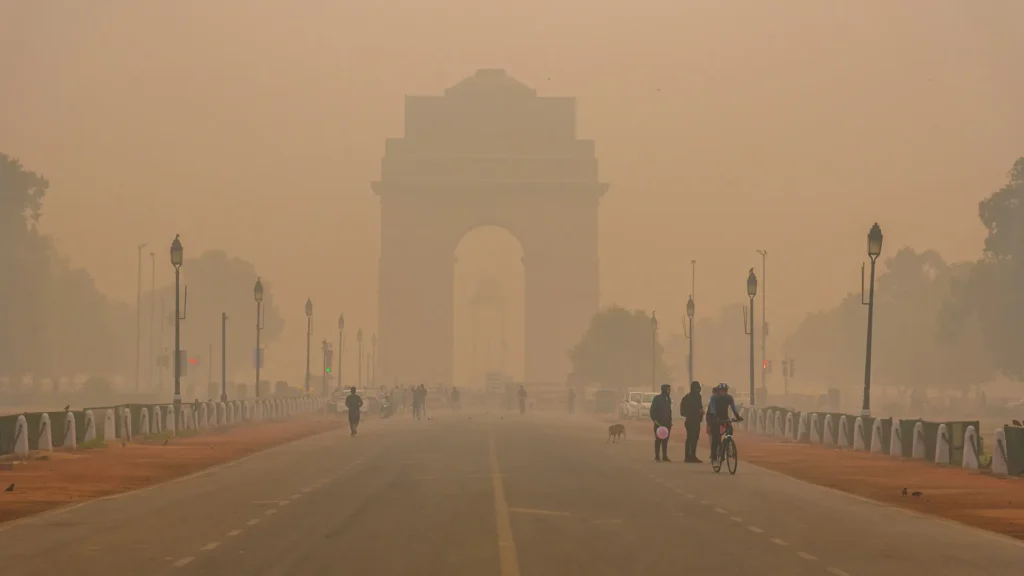Delhi Metro Delay Due to Signal Issue on June 22, 2024

Delhi’s bustling metropolis faced significant commuting challenges on June 22, 2024, as the city’s metro system experienced delays caused by a signal malfunction. This unexpected disruption impacted thousands of passengers who rely on the metro for their daily transportation needs, highlighting both the strengths and weaknesses of Delhi’s public transportation network.
The Incident
At approximately 8:00 AM, just as the morning rush hour began to peak, the Delhi Metro Rail Corporation (DMRC) reported a signal failure on the Blue Line, which is one of the busiest routes. The Blue Line, stretching from Dwarka Sector 21 in the west to Noida Electronic City in the east and Vaishali in the northeast, connects key residential and commercial areas. The signal issue caused trains to halt abruptly between stations, leaving passengers stranded and anxious about reaching their destinations on time.
Immediate Impact
The immediate impact of the signal failure was felt most acutely by commuters traveling to work, school, and other appointments. Passengers reported delays of up to an hour, with trains moving at a snail’s pace or stopping entirely for extended periods. Many stations along the Blue Line saw increased crowding as trains arrived less frequently and with fewer passengers on board, exacerbating the situation.
Passenger Experiences
Rohit Sharma, a daily commuter from Noida, described the scene as chaotic. “I boarded the metro at Noida Sector 15 at around 8:15 AM, expecting to reach Rajiv Chowk by 9:00 AM. However, we were stuck near Mayur Vihar for almost 30 minutes. It was frustrating, and many people were visibly distressed,” he said. Rohit’s experience was shared by thousands of others who took to social media to voice their frustrations and seek updates from DMRC.

DMRC’s Response
The DMRC quickly acknowledged the issue through its official Twitter handle and station announcements. Technical teams were dispatched immediately to diagnose and rectify the problem. By 10:00 AM, the DMRC announced that the signal issue had been identified and was in the process of being fixed. Full restoration of services was achieved by 11:30 AM, but the ripple effect of the delays continued to affect schedules throughout the day.
Anuj Dayal, Executive Director of Corporate Communications for DMRC, issued a statement apologizing for the inconvenience caused to commuters. “We deeply regret the delays experienced by our passengers this morning. Our technical teams worked swiftly to resolve the signal malfunction. We are conducting a thorough investigation to prevent such issues in the future.”
Economic and Social Implications
The metro delay had broader implications beyond individual inconveniences. Businesses reported a decrease in productivity as employees arrived late. Schools noted increased tardiness, disrupting morning routines and class schedules. For many daily wage workers, the delay translated directly into lost income, highlighting the dependency of Delhi’s workforce on reliable public transport.
Systemic Challenges and Future Solutions
While the Delhi Metro is often praised for its efficiency and coverage, this incident underscores the vulnerability of even the most well-regarded systems to technical failures. The DMRC has faced similar issues in the past, though not as widespread or impactful as the recent signal failure.
Experts suggest that investing in more advanced signaling technology and implementing robust maintenance protocols can mitigate such risks. Dr. Rajesh Mehra, a transportation engineer, emphasized the need for continuous upgrades. “The technology behind metro systems is evolving rapidly. To keep up with growing urban demands, the DMRC must invest in state-of-the-art signaling and monitoring systems. Regular maintenance checks and immediate response mechanisms are crucial.”
Public Reaction and Media Coverage
The metro delay dominated news cycles and social media throughout the day. Television channels aired footage of crowded platforms and interviewed stranded passengers. Hashtags like #DelhiMetroDelay and #SignalFailure trended on Twitter, with users sharing their experiences and calling for improvements.
While the majority of the public expressed frustration, some also acknowledged the DMRC’s efforts to communicate transparently and resolve the issue promptly. “It’s unfortunate that these things happen, but I appreciate that DMRC kept us informed and worked to fix the problem as quickly as they could,” said Meena Kumari, a college student.
Conclusion
The signal failure on June 22, 2024, served as a stark reminder of the critical role that the Delhi Metro plays in the daily lives of millions. While the DMRC’s quick response helped mitigate the immediate chaos, the incident highlights the need for ongoing investment in infrastructure and technology to ensure reliability. As Delhi continues to grow, the metro system must evolve to meet the increasing demands of its users, providing not just efficient, but also resilient service.
In the aftermath of the delay, the focus now shifts to long-term solutions that can prevent such disruptions in the future, ensuring that Delhi’s metro system remains a reliable backbone for the city’s transportation needs.





